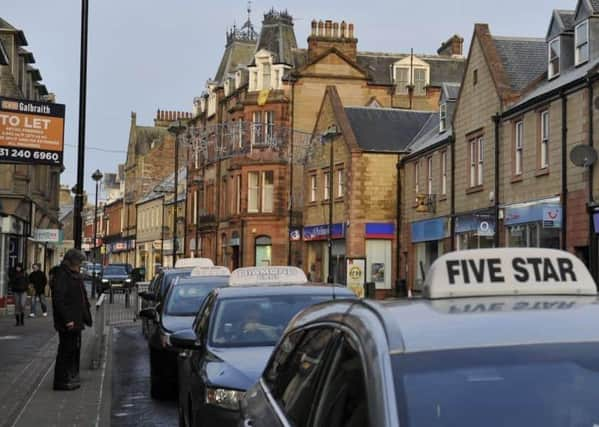Taxi fares tariff set to rise by 4.6 per cent


On Monday, Tuesday, November 15, members of the council’s decision-making Executive Committee will be asked t endorse the increase in the taxi tariff.
The decision follows a consultation with both the taxi operators and members of the public.
Advertisement
Hide AdAdvertisement
Hide AdA report to the committee from John Curry, the council’s director of Infrastructure and Environment, says: “It should be noted that in recent months operators have faced increased operating costs related directly to volatile fuel prices, increased insurance premiums and driver wages.
“Whilst not directly related to taxi fare scales, it’s also worth noting that most local bus operators have increased fares by up to 10 per cent on most single fares.”
The on-line consultation led to a total of 68 responses, with 48 disagreeing with the rise and 20 agreeing with it.
The local authority is required under law to carry out a review of fares every 18 months but that exercise was postponed in 2021 as a result of operational pressures associated with the Covid-19 pandemic.
Advertisement
Hide AdAdvertisement
Hide AdAfter the last review in September 2019 a 3.7 per cent tariff increase was agreed.
Mr Curry adds: “Whilst a fares increase may have an adverse impact on poverty, social isolation and affordability, not increasing fares at a time when operators are facing increased operating costs could worsen the problem. Operators may be unable to continue a business. Increasing fares will enable operators to increase driver wages which in turn will encourage drivers back to driving taxis.
“Taxis are key enablers across the region, particularly for people who do not reside close to or along major bus routes, any reduction in the number of taxis that operate will have a knock on effect to the wider transport network, including school transport.
“Taxis are a carbon consuming service. However, this fact must be balanced against the level of provision, particularly in rural areas where mainstream local bus services cannot or do not operate. Consultation is ongoing with the taxi trade on moving towards more sustainable fuel delivery sources.”